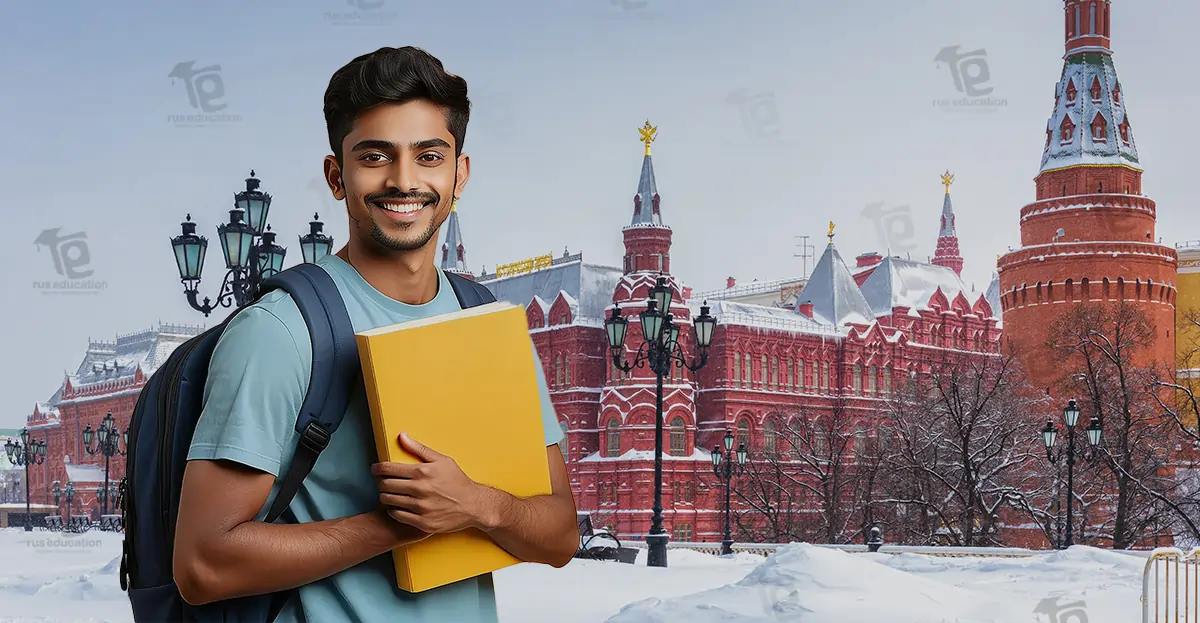A huge congratulations to you if you are about to or planning to pursue your MBBS in Russia. You are about to kickstart a bright and thriving medical career. While your student experience is going to be phenomenal in this beautiful country, you need to brace yourself for its climate. So, in this blog, we will see how Indian students can deal with winter in Russia like pros.
Winters in the nation can be extremely cold. In Siberia and the northern parts, temperatures often plunge far below zero. It is crucial for students coming to Russia to prepare for its climate beforehand.
What Climate to Expect While Pursuing MBBS in Russia?
Be prepared for a chilly climate when you come to Russia for your MBBS. Winters here can be really harsh, and temperatures can drop quite low, depending on where you are. Some parts of Russia get a lot of snow and can be freezing for months.
On the bright side, summers can be pleasantly warm! Just remember, the weather will feel different based on which region your university is in, so it’s good to check what to expect in your city beforehand.
➨ Also Read: Why Studying MBBS in Russia is the Best Decision in 2025?
How to survive a Russian winter?
Don’t let the extreme climate ruin your winter in Russia. Here are some of the best ways to survive this nation’s weather without any hassle:
Clothing and Gear
Get yourself a good winter jacket: A down coat or a parka with a fur-lined hood is a great choice because it keeps you warm and looks good too.
Dress in layers to stay comfortable: thermals, sweaters, and a cozy scarf will help you handle the changing temperatures.
Don’t forget your hands and feet: Waterproof gloves, warm boots, and thick wool socks are a must to keep frostbite away.
Always wear a warm hat: A fur cap or a snug beanie that covers your ears will make a big difference in the cold.
Health and Well-being
Skin Care:
Keep your skin happy and healthy during winter! Use a good moisturizer to prevent dryness and flaking. If you’re heading outdoors, limit your time in harsh, freezing winds—your skin will thank you later.
Mental Health:
Winter blues, also called seasonal affective disorder (SAD), are real. Stay connected with friends and family, even if it’s just a warm chat over a cup of tea. Pick up hobbies that make you feel good, sip your favorite hot drinks, and if you have access to a sauna. It’s a great way to relax and lift your mood.
Stay Social:
Don’t hibernate alone! Make an effort to socialize. Staying connected is one of the best ways to beat winter gloom.
Other Tips for Winter in Russia for Indian Students
There are some other crucial tips Indian students should keep in mind while living in Russia as an Indian student, which are as follows:
Keep Moving: Don’t let the cold turn you into a couch potato! Staying active helps your body adjust to chilly weather and keeps you feeling energetic.
Eat Well to Stay Warm: Fuel up on nourishing meals. Foods with garlic and ginger are especially good for keeping you warm from the inside out.
Watch Out for Slush: Be ready for messy sidewalks! Winter often means slushy, icy streets — so wear sturdy shoes and walk carefully to avoid slips.
Embrace the Winter Magic: Russia’s winter scenery is stunning. Take time to enjoy it, whether you’re strolling through snow-covered streets or visiting incredible places like the frozen Lake Baikal.
Conclusion
Winter in Russia may feel intimidating at first, but trust us, with the right mindset and a few smart habits, you’ll not just survive, but truly enjoy it! These cold months are also an opportunity to create unforgettable memories and experience Russia’s breathtaking winter beauty. So, gear up, take care of your health, lean on your friends when you feel the winter blues, and step out to explore this magical season.
Are you planning to pursue your MBBS in Russia? If so, contact Rus Education for complete assistance and support.
FAQs
Q.1 What are the winter months in Russia?
Answer: Winters in Russia (November to March) can be seriously cold and full of snow. It’s a tough season not just for newcomers but for locals too! On average, temperatures hover between -3°C (25°F) and -9°C (14°F), but in some places, the mercury can plunge to an icy -42°C (-44°F).
Q.2 Is Russia cold 24/7?
Answer: Russia’s climate, though spread over such a huge area, has a simple pattern. Summers can be warm to quite hot, while winters are cold to freezing across most regions. Snow blankets nearly the entire country during winter, except for some of the southern parts like the North Caucasus, which stay a bit milder.
Q.3 Is Russia colder than Canada?
Answer: Both Russia and Canada are known for their harsh winters. However, Russia tends to be even colder and often hits more extreme low temperatures than Canada on average.
Q.4 How do people survive Russian winters?
Answer: In Russia, people use double-pane windows to keep the cold out and the warmth in. Many homes also have shutters for extra protection against the freezing winds. You’ll often see steep roofs too—they’re designed that way so the snow can slide off easily instead of piling up.
Q.5 What do Russians eat during winter?
Answer: Cabbage, potatoes, and hardy greens are staples in Russian and Eastern European kitchens because they thrive in colder climates. To make sure there’s enough to eat during the long winters, people often pickle vegetables like cabbage (think sauerkraut!), cucumbers, and tomatoes in brine to keep them fresh for months. Pickled apples and other fruits used to be popular too, a tasty way to enjoy a bit of summer when it’s freezing outside!




